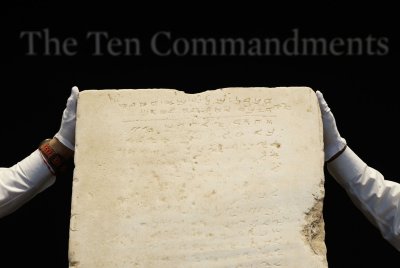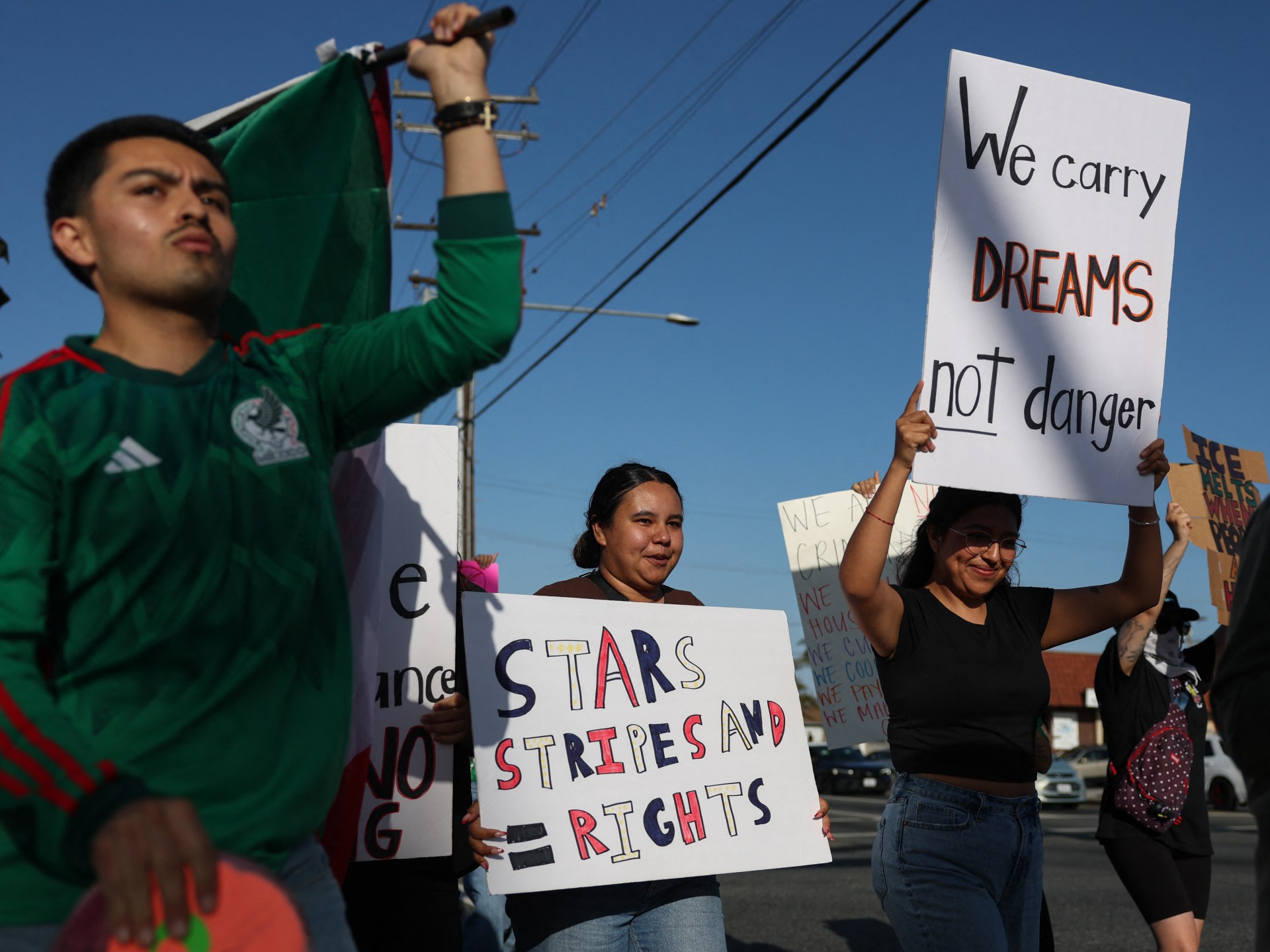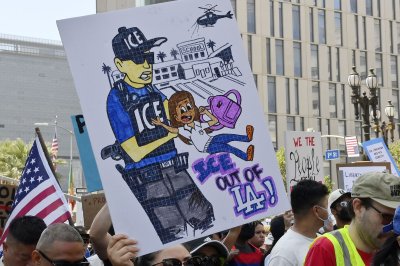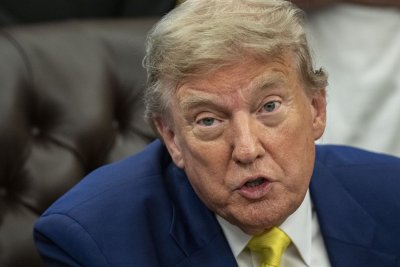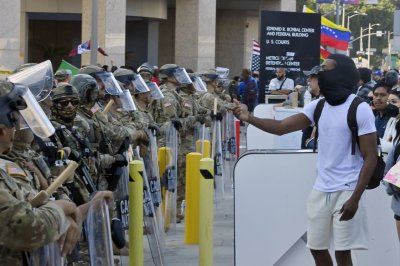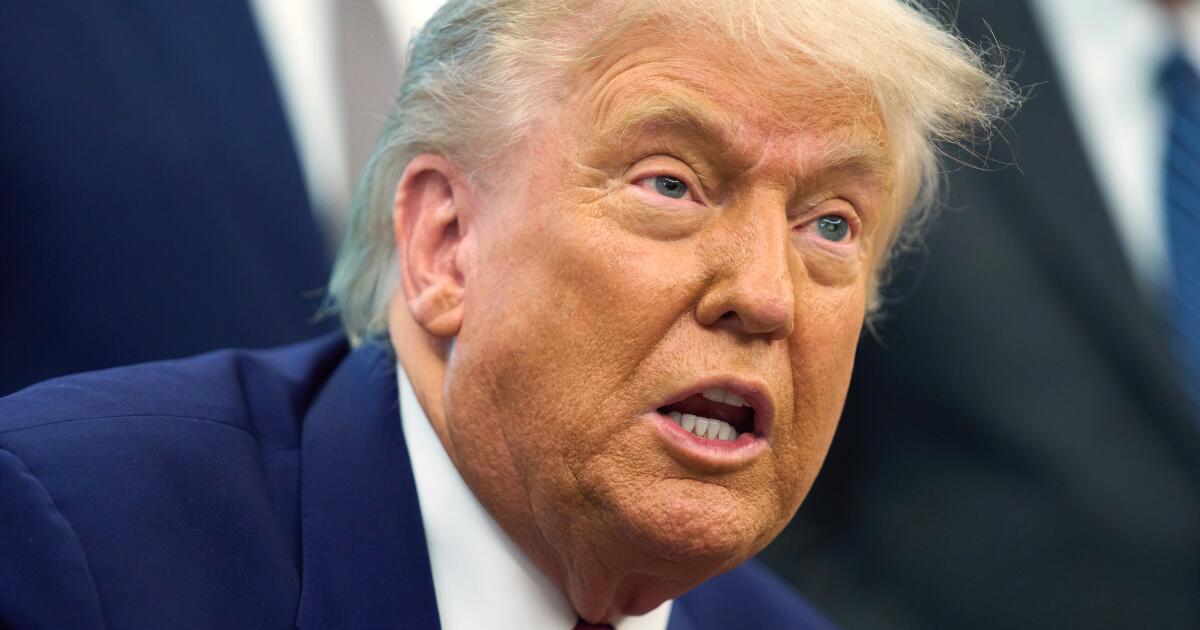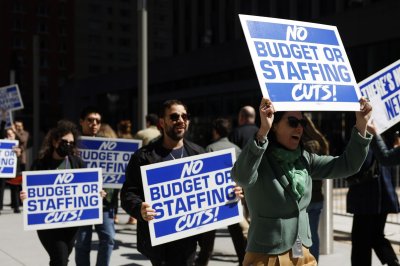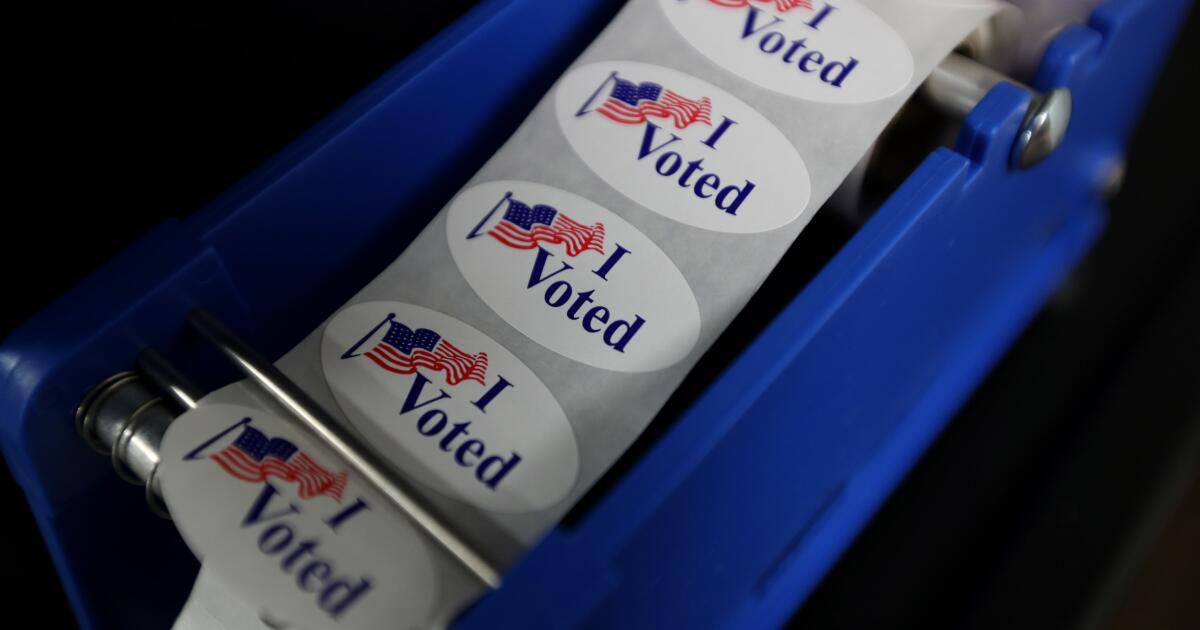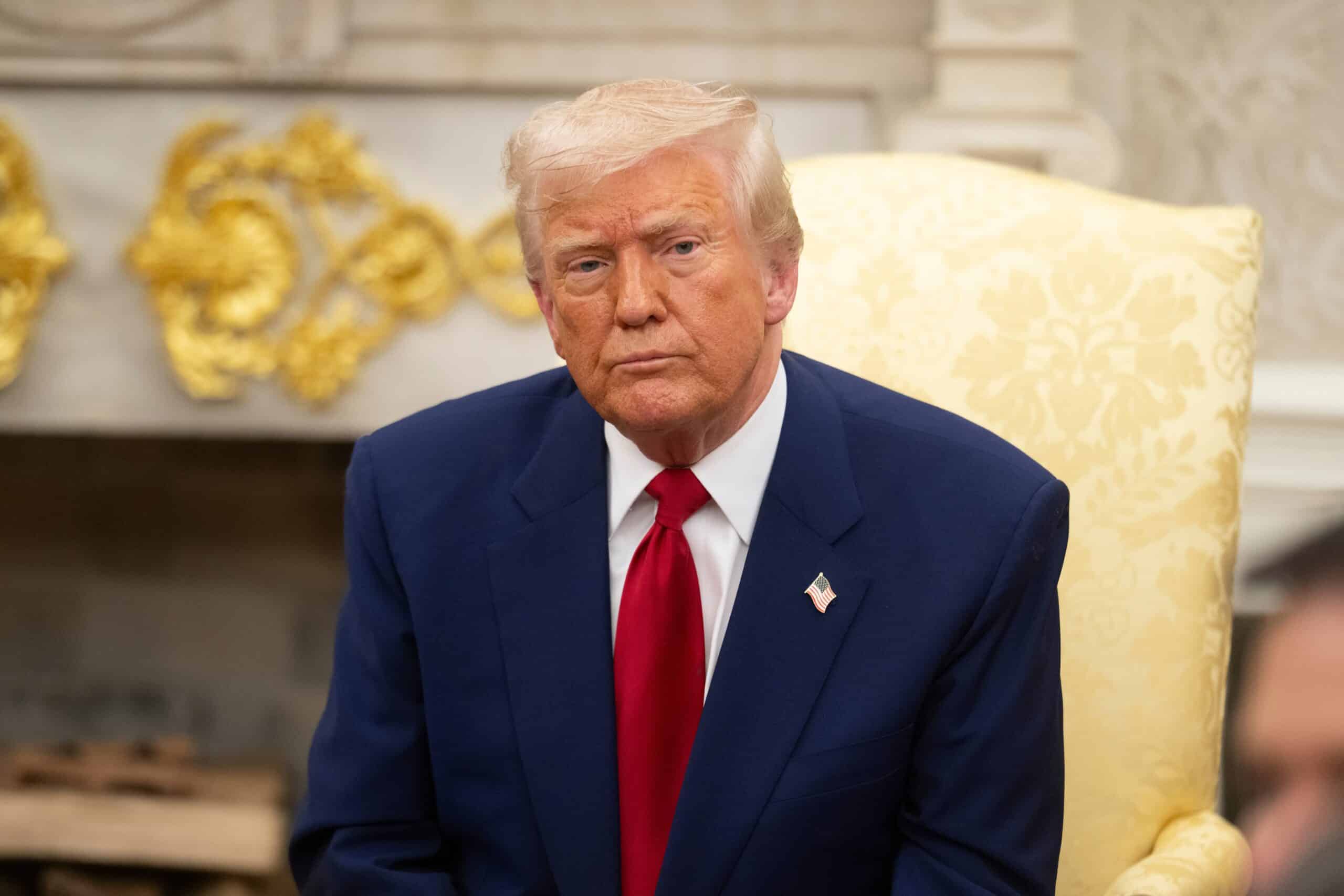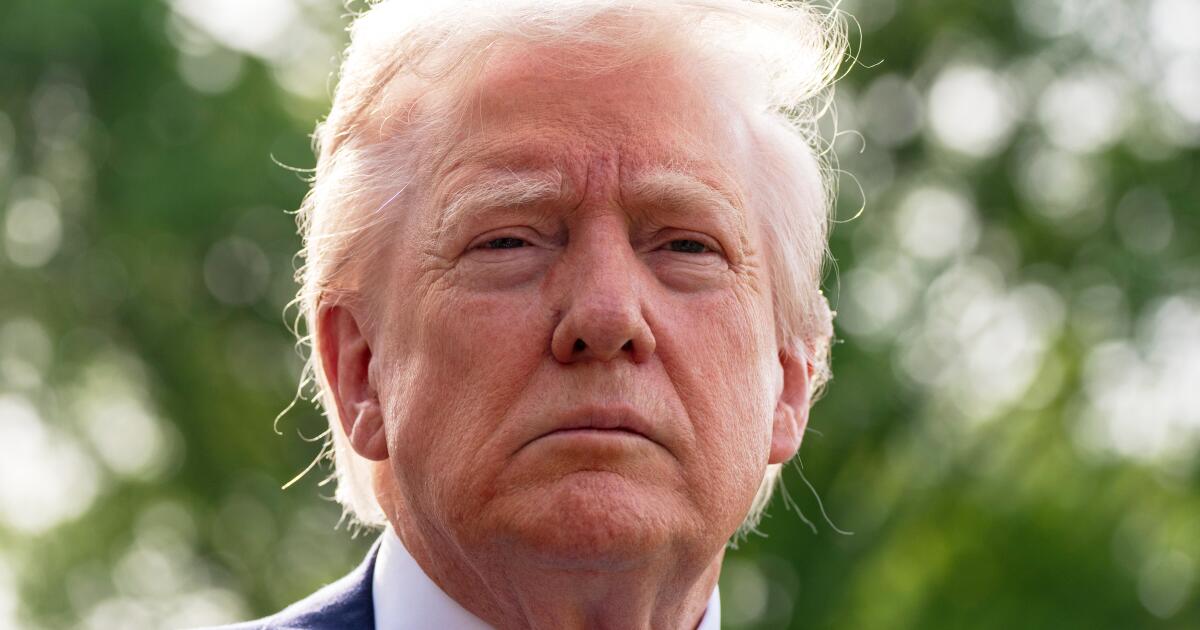NEW YORK — As President Trump focuses on global trade deals and dispatching troops to aid his immigration crackdown, his lawyers are fighting to erase the hush money criminal conviction that punctuated his reelection campaign last year and made him the first former — and now current — U.S. president found guilty of a crime.
On Wednesday, that fight landed in a federal appeals court in Manhattan, where a three-judge panel heard arguments in Trump’s long-running bid to get the New York case moved from state court to federal court so he can then seek to have it thrown out on presidential immunity grounds.
It’s one way he’s trying to get the historic verdict overturned.
The judges in the 2nd U.S. Circuit Court of Appeals spent more than an hour grilling Trump’s lawyer and the appellate chief for the Manhattan district attorney’s office, which prosecuted the case and wants it to remain in state court.
At turns skeptical and receptive to both sides’ arguments on the weighty and seldom-tested legal issues underlying the president’s request, the judges said they would take the matter under advisement and issue a ruling at a later date.
But there was at least one thing all parties agreed on: It is a highly unusual case.
Trump lawyer Jeffrey Wall called the president “a class of one” and Judge Susan L. Carney noted that it was “anomalous” for a defendant to seek to transfer a case to federal court after it has been decided in state court.
Carney was nominated to the 2nd Circuit by Democratic President Obama. The other judges who heard arguments, Raymond J. Lohier Jr. and Myrna Pérez, were nominated by Obama and Democratic President Biden, respectively.
The Republican president is asking the federal appeals court to intervene after a lower-court judge twice rejected the move. As part of the request, Trump wants the court to seize control of the criminal case and then ultimately decide his appeal of the verdict, which is now pending in a state appellate court.
Trump’s Justice Department — now partly run by his former criminal defense lawyers — backs his bid to move the case to federal court. If he loses, he could go to the U.S. Supreme Court.
“Everything about this cries out for federal court,” Wall argued.
Wall, a former acting U.S. solicitor general, argued that Trump’s historic prosecution violated the U.S. Supreme Court’s presidential immunity ruling, which was decided last July, about a month after the hush money verdict. The ruling reined in prosecutions of ex-presidents for official acts and restricted prosecutors from pointing to official acts as evidence that a president’s unofficial actions were illegal.
Trump’s lawyers argue that prosecutors rushed to trial instead of waiting for the Supreme Court’s presidential immunity decision, and that they erred by showing jurors evidence that should not have been allowed under the ruling, such as former White House staffers describing how Trump reacted to news coverage of the hush money deal and tweets he sent while president in 2018.
“The district attorney holds the keys in his hand,” Wall argued. “He doesn’t have to introduce this evidence.”
Steven Wu, the appellate chief for the district attorney’s office, countered that Trump was too late in seeking to move the case to federal court. Normally, such a request must be made within 30 days of an arraignment, but a federal appeals court in Washington, D.C., recently ruled that exceptions can be made if “good cause” is shown. Trump hasn’t done that, Wu argued.
While “this defendant is an unusual defendant,” Wu said, there is nothing unusual about a defendant raising subsequent court decisions, such as the Supreme Court’s immunity ruling for Trump, when they appeal their convictions. That appeal, he argued, should stay in state court.
Trump was convicted in May 2024 of 34 felony counts of falsifying business records to conceal a hush money payment to adult film actor Stormy Daniels, whose affair allegations threatened to upend his 2016 presidential campaign. Trump denies her claim and said he did nothing wrong. It was the only one of his four criminal cases to go to trial.
Trump’s lawyers first sought to move the case to federal court following his March 2023 indictment, arguing that federal officers including former presidents have the right to be tried in federal court for charges arising from “conduct performed while in office.” Part of the criminal case involved checks he wrote while he was president.
They tried again after his conviction, about two months after the Supreme Court issued its immunity ruling.
U.S. District Judge Alvin Hellerstein, who was nominated by Democratic President Clinton, denied both requests, ruling in part that Trump’s conviction involved his personal life, not his work as president.
Wu argued Wednesday that Trump and his lawyers should’ve acted more immediately after the Supreme Court ruled, and that by waiting they waived their right to seek a transfer. Wall responded that they delayed seeking to move the case to federal court because they were trying to resolve the matter by raising the immunity argument with the trial judge, Juan Merchan.
Merchan ultimately rejected Trump’s request to throw out the conviction on immunity grounds and sentenced him on Jan. 10 to an unconditional discharge, leaving his conviction intact but sparing him any punishment.
Sisak writes for the Associated Press.
